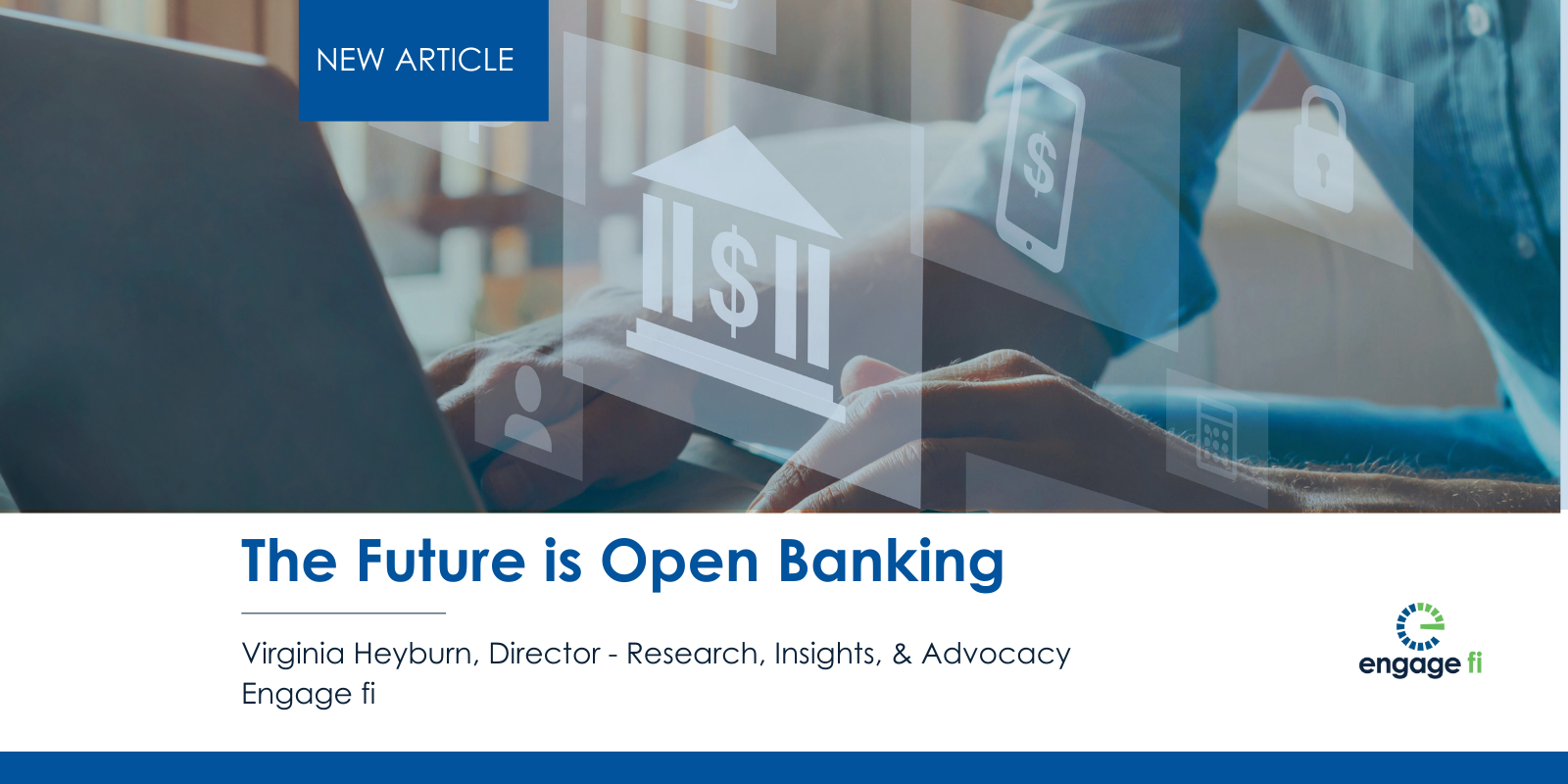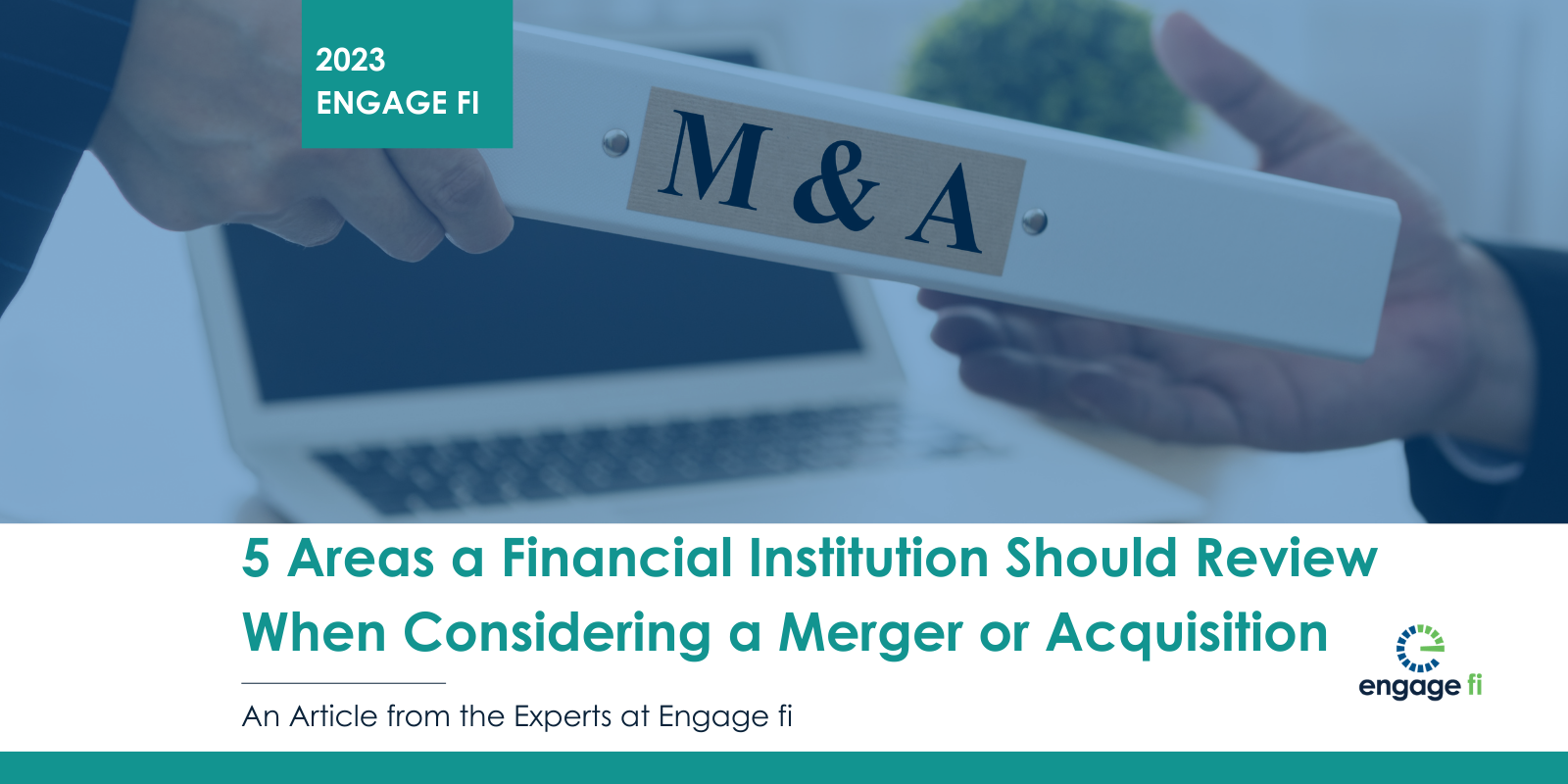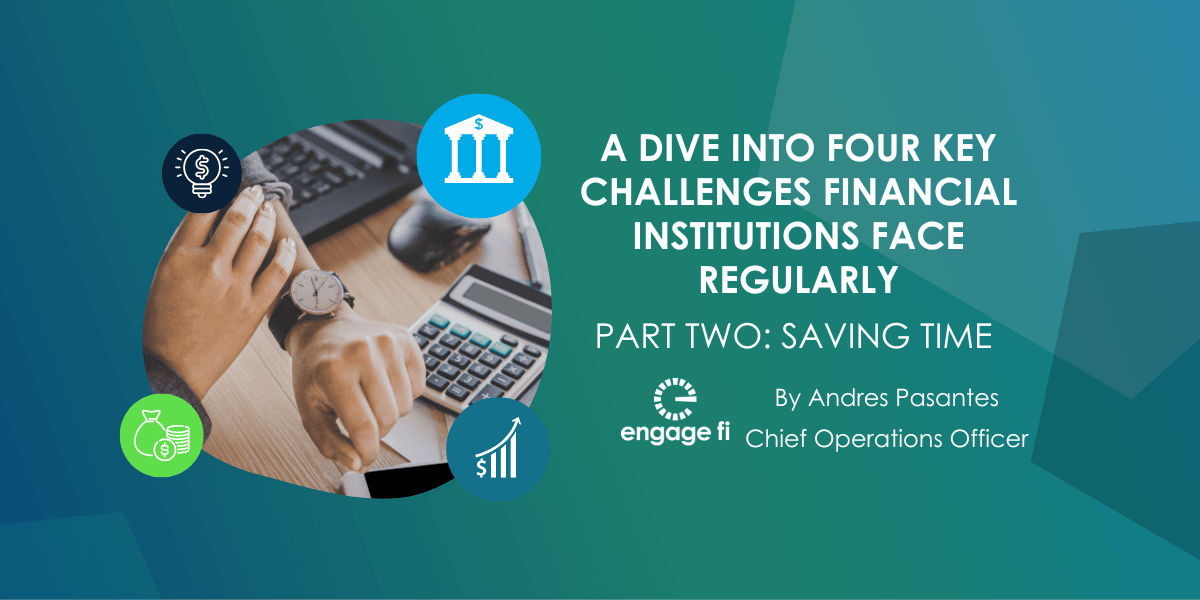The Future is Open Banking
Virginia HeyburnDirector – Research, Insights & AdvocacyEngage fi (Formerly CU Engage)
Navigate this high stakes process with precision.
A solution delivering fast, efficient, and accurate core data.
Digital solutions to grow, scale, and outperform.
Reliable, efficient, and integrated core platforms deliver results.
Select modern communications channels to integrate with core and digital solutions.
Strategic Planning
Support services for the strategic planning process at every level.
M&A Planning
Realize the key value drivers resulting from your merger or acquisition.
Performance Benchmarking
Tailored metrics and benchmarks designed to assess relationships.
Organizational Efficiency
Enhance efficiency across branches, digital channels, and contact centers.
A digital library of industry news, analysis, best practices, and thought leadership tailored to the challenges and opportunities faced by financial institutions.
Our in-depth analysis of conversion strategies, M&A activity, and the evolving landscape of financial services.
A podcast channel for the time-constrained banking professional delivering sharp insights on fintech, strategy, and leadership to help you stay ahead in a fast-changing financial world.
For 360fi Workflow clients only. Sign in to access the workflow library and other guides, forms, and tutorials.
3 min read
 Jennifer Addabbo
:
Oct 23, 2024 10:59:51 PM
Jennifer Addabbo
:
Oct 23, 2024 10:59:51 PM
By Jenn Addabbo
Chief Executive Officer and Co-founder
Engage fi
At first glance, many might ask, why not solve your problems internally, whether it be a cost reduction effort, a strategic move to enter a new market, or an upgraded digital/fintech project? Sometimes the reason can be simple. An external perspective is needed for guidance and protection.
The pressures that banks and credit unions face daily can be extreme. Many employees find themselves playing various roles within the financial institution. With so many hats to wear, you can quickly run out of capacity and resources and have no time to “do it all.”
There are many benefits to working with an experienced consultant, but three stand out.
Consultants offer an unbiased perspective based on what they’ve seen work (or not) before. The best consultants are vendor agnostic. They truly feel there isn’t a “one size fits all” for vendor selection.
A consultant’s primary value is their knowledge, expert skills, and influence. At Engage fi, we work daily with a number of vendors that support banks as well as credit unions. As a result, we are continuously broadening and deepening our knowledge of banking trends, industry challenges, and new technologies and processes so we can better assist and inform financial institution employees who already have too many hats to wear. In addition, we know which vendors are performing well and which ones aren’t. It can be easy to believe what a vendor salesperson is telling you as fact, but unless you have a perspective of the market conditions and visibility into other deployments and service levels, you can’t be certain.
Additionally, some risks are inherent with certain vendors, especially with the fintech explosion. Everyone is excited about newer technologies, but it can be distracting. A consultant can conduct the necessary due diligence and ensure the risk is suitable for your financial institution’s long-term goals – they get to know and understand your requirements. If your financial institution is on the cutting-edge, then that will be a completely different type of vendor set than a financial institution who doesn’t have the resources or is a little more risk averse.
Vendors are becoming more proactive and approaching financial institutions well ahead of contract ending dates, and they are enticing or incenting to renew. It’s nearly impossible to manage these complex vendor incentives that are constantly changing. A financial institution may choose to take whatever incentive is offered and extend its contract, but that might not be the best path forward based on the financial modeling and competitive market. This happens frequently because the financial institution doesn’t plan on changing vendors, have the time or expertise to analyze the offer, or have visibility into what options are possible.
At Engage fi, we want to reinforce the idea that you don’t necessarily have to change vendors, but you need to know the right questions to ask to ensure you are getting the most out of your contracts and vendor relationships. For example, an experienced consultant can help you negotiate better terms that will have a more significant impact long term than any incentive that was initially offered. Maybe it’s in your best interest to wait until closer to the contract term and renegotiate. A knowledgeable consultant can help you use negotiation levers that you might not be aware exist.
We’ve all heard it before: the right people on your team can truly make a difference. Unfortunately, financial institutions may think they will receive a better opportunity by leaving a vendor, and that is not always the case. Sometimes you just need to push the reset button on your existing vendor-partner relationship.
A consultant can help you identify which processes are effective and which ones aren’t. Additionally, a consultant can work with your vendor to reestablish guidelines and service-level agreements. At Engage fi, our consultants get to the crux of challenges with the vendor relationship so you can focus on other priorities. Many times, you are already working with the right people who know your financial institution’s goals, and only small adjustments need to be made. The answer isn’t always to leave.
The expertise and objective viewpoint of an experienced consultant are invaluable in guiding your financial institution to a healthier, more profitable outcome. Engage fi can help you create the necessary checks and balances to ensure you stay on top of your financial institution’s strategic goals while protecting your greatest asset – your team and your customers and members.

Jennifer Addabbo is Co-founder and CEO at Engage fi and has worked in financial services for over 20 years. Before founding Engage fi she worked for large financial services technology providers in digital banking and payments.
Engage fi has 65+ employees with extensive industry backgrounds, saving its clients over $4.6 billion in dollars and incentives. To learn more about how Engage fi can help your financial institution, visit www.engagefi.com

Virginia HeyburnDirector – Research, Insights & AdvocacyEngage fi (Formerly CU Engage)

Now might be the best time to consider a merger or acquisition (M&A) despite the uncertain environment. Technology is changing the way we bank daily,...

By Andres Pasantes